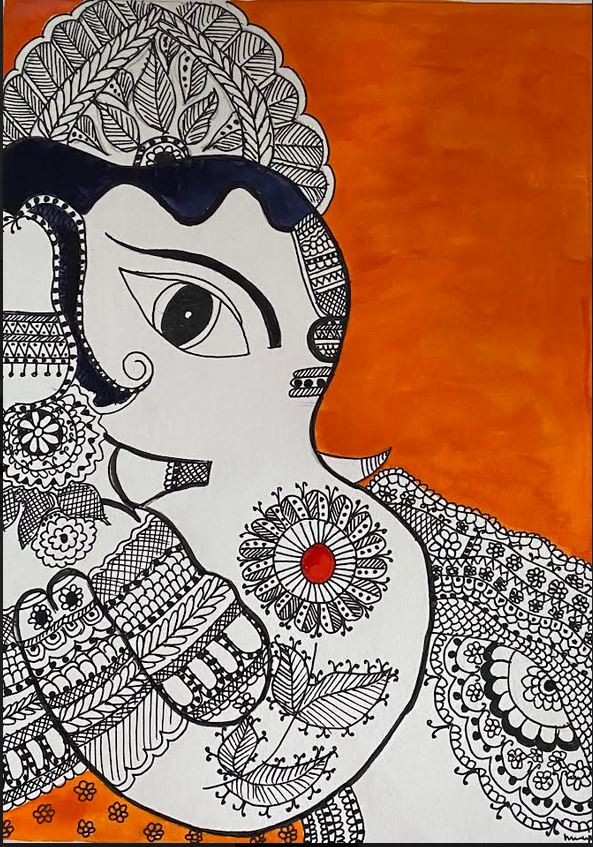
अगजाननपद्मार्कं गजाननमहर्निशम् ।
अनेकदन्तं भक्तानाम् एकदन्तमुपास्महे ॥
agajānanapadmārkaṃ gajānanamaharniśam ।
anekadantaṃ bhaktānām ekadantamupāsmahe ॥
अग (aga) = that which does not move = mountain
अगजा (agajā) = girl who is born to a mountain = पार्वति (pārvati)
आनन (ānana) = face
पद्म (padma) = lotus
अर्क (arka) = Sun
अगजा-आनन-पद्म-अर्कम् (agajā-ānana-padma-arkam) = to the one who is the Sun for the lotus face of पार्वति (pārvati)= गणपतिम् (gaṇapatim)
गजाननम् (gajānanam) = गजस्य आननम् इव आननं यस्य (gajasya ānanam iva ānanaṃ yasya) = to the one whose face is like that of the elephant = गणपतिम् (gaṇapatim)
अहर्निशम् (aharniśam)= day and night (always)
अनेकदन्तम् (anekadantam) = अनेकदम् (anekadam) तम् (tam)
अनेकदम् (anekadam) = to the one who gives (provides) many / everything
भक्तानाम् (bhaktānām) = for the devotees
एकदन्तम् (ekadantam)= to the one who has got one tooth
तम् (tam)= to Him
उपास्महे (upāsmahe) = we worship
अन्वय: (वयम्) अगजाननपद्मार्कं, गजाननं, भक्तानाम् अनेकदम्, एकदन्तं, तं, अहर्निशम् उपास्महे ।
anvaya (prose order):
(vayam) agajānanapadmārkaṃ, gajānanaṃ, bhaktānām anekadam, ekadantaṃ, taṃ, aharniśam upāsmahe ।
Meaning: We always worship Him, who is the Sun for the lotus face of pārvati, whose face is like that of the elephant, who bestows everything to the devotees and who has only one tooth.
Credits: Courtesy Brahmachari Ved Chaitanya of Chinmaya International Foundation (CIF)
Image courtesy: Manju Sattiraju
P.S.: All errors / mistakes are my own